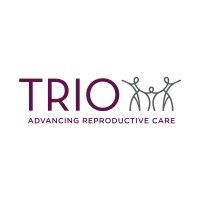预约演示
更新于:2025-05-07

TRIO Fertility, Inc.
更新于:2025-05-07
概览
关联
3
项与 TRIO Fertility, Inc. 相关的临床试验NCT06555575
A Randomized Controlled Trial of Ubiquinone vs Ubiquinol Supplementation in Women Over Age 37 Undergoing in Vitro Fertilization.
The objective of this study is to determine if ubiquinol will result in improved reproductive outcomes in older women at a reduced oral dose compared to current standard treatment with ubiquinone.
开始日期2025-01-23 |
申办/合作机构 |
NCT06450301
Is Thin Endometrial Lining Associated with Senescent Endometrial Cells
The goal of this observational study is to determine if thin endometrial lining that is unresponsive to estrogen might be associated with the presence of senescent cells in patients following long-term use of oral contraceptives. The main question it aims to answer is:
Are there any senescent cells present in thin endometrial lining?
During the luteal phase of the cycle, participants will will undergo:
* Gynecologic US to measure the endometrial lining thickness and pattern.
* Endometrial biopsy with Pipelle catheter
Are there any senescent cells present in thin endometrial lining?
During the luteal phase of the cycle, participants will will undergo:
* Gynecologic US to measure the endometrial lining thickness and pattern.
* Endometrial biopsy with Pipelle catheter
开始日期2024-09-11 |
申办/合作机构 |
NCT06117982
Does Subcutaneous Granulocyte Colony Stimulating Factor (G-CSF) Improve Ovarian Reserve in Women With Premature Ovarian Insufficiency?
The goal of this pilot study is to improve ovarian reserve markers in patients with premature ovarian insufficiency. The main question it aims to answer is:
- Will treatment with G-CSF allow improvement in markers of ovarian reserve?
- Will treatment with G-CSF allow improvement in markers of ovarian reserve?
开始日期2023-10-13 |
申办/合作机构 |
100 项与 TRIO Fertility, Inc. 相关的临床结果
登录后查看更多信息
0 项与 TRIO Fertility, Inc. 相关的专利(医药)
登录后查看更多信息
2
项与 TRIO Fertility, Inc. 相关的文献(医药)2019-04-01·Fertility and Sterility
Why do euploid embryos fail to implant?
作者: R. Smith ; J. Meriano ; R.F. Casper ; D. Nayot
IVIg for recurrent implantation failure: the right treatment for the right patient?
作者: Buckett, William ; Benoit, Joanne ; Mazer, Bruce D. ; Laskin, Carl ; Sylvestre, Camille ; Khoudja, Rabea ; Mahutte, Neal ; Beltempo, Marc ; Genest, Genevieve ; Peero, Einav Kadour ; Banjar, Shorooq ; Phillips, Simon ; Jamal, Wael ; Beauchamp, Coralie ; Ton-leclerc, Shaonie ; Kadoch, Isaac Jacques ; Gold, Phil ; Reinblatt, Shauna ; Dahan, Michael H.
100 项与 TRIO Fertility, Inc. 相关的药物交易
登录后查看更多信息
100 项与 TRIO Fertility, Inc. 相关的转化医学
登录后查看更多信息
组织架构
使用我们的机构树数据加速您的研究。
登录
或

管线布局
2025年11月11日管线快照
无数据报导
登录后保持更新
药物交易
使用我们的药物交易数据加速您的研究。
登录
或

转化医学
使用我们的转化医学数据加速您的研究。
登录
或

营收
使用 Synapse 探索超过 36 万个组织的财务状况。
登录
或

科研基金(NIH)
访问超过 200 万项资助和基金信息,以提升您的研究之旅。
登录
或

投资
深入了解从初创企业到成熟企业的最新公司投资动态。
登录
或

融资
发掘融资趋势以验证和推进您的投资机会。
登录
或

生物医药百科问答
全新生物医药AI Agent 覆盖科研全链路,让突破性发现快人一步
立即开始免费试用!
智慧芽新药情报库是智慧芽专为生命科学人士构建的基于AI的创新药情报平台,助您全方位提升您的研发与决策效率。
立即开始数据试用!
智慧芽新药库数据也通过智慧芽数据服务平台,以API或者数据包形式对外开放,助您更加充分利用智慧芽新药情报信息。
生物序列数据库
生物药研发创新
免费使用
化学结构数据库
小分子化药研发创新
免费使用